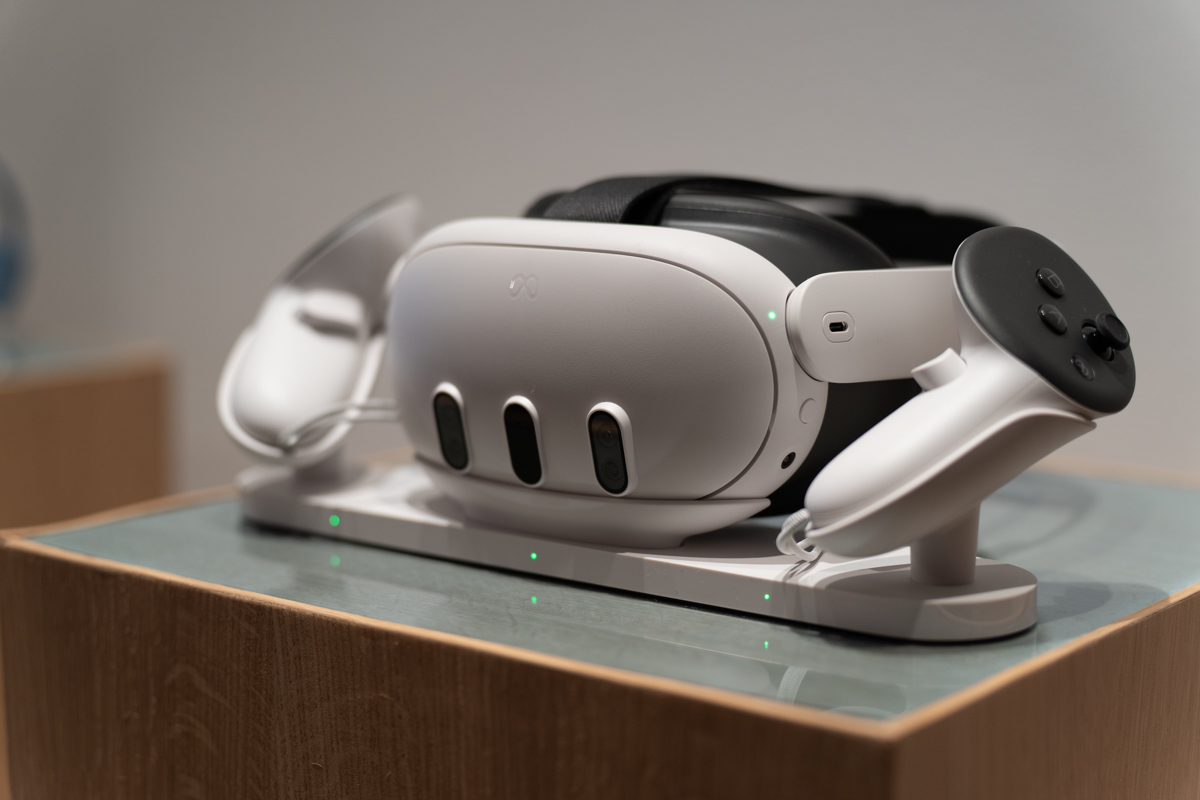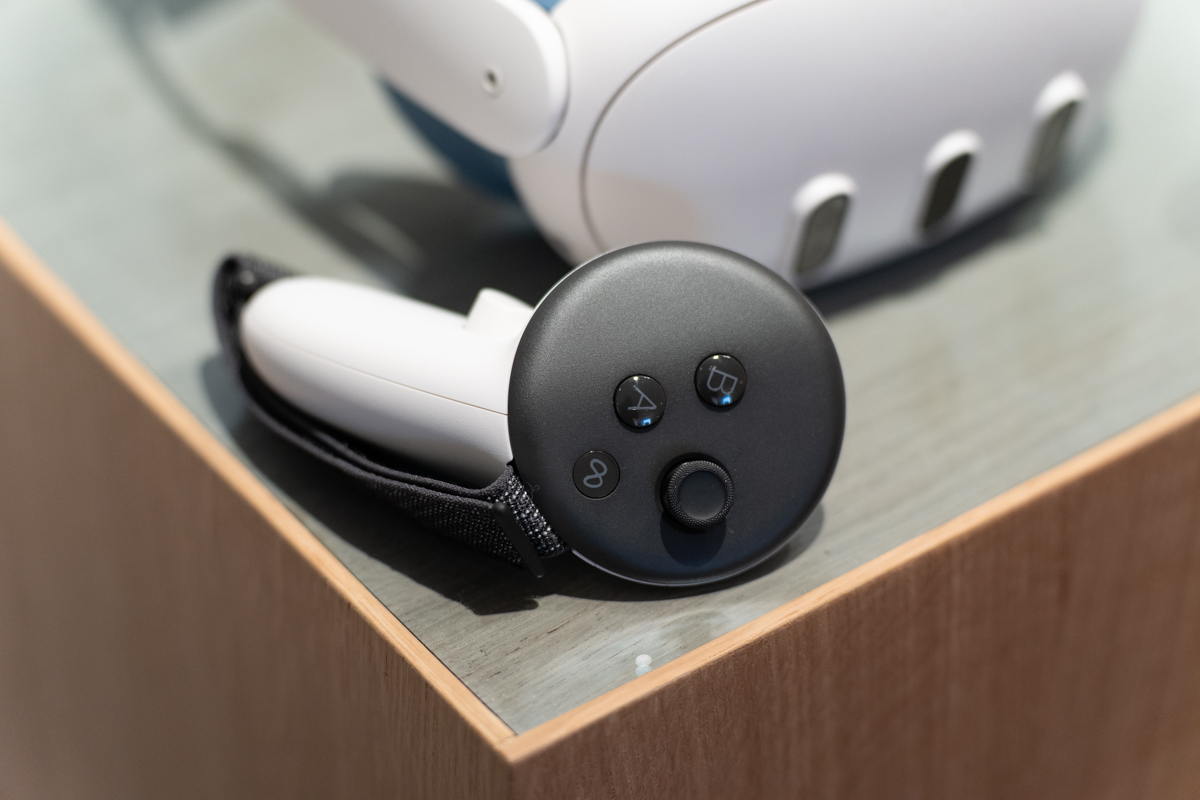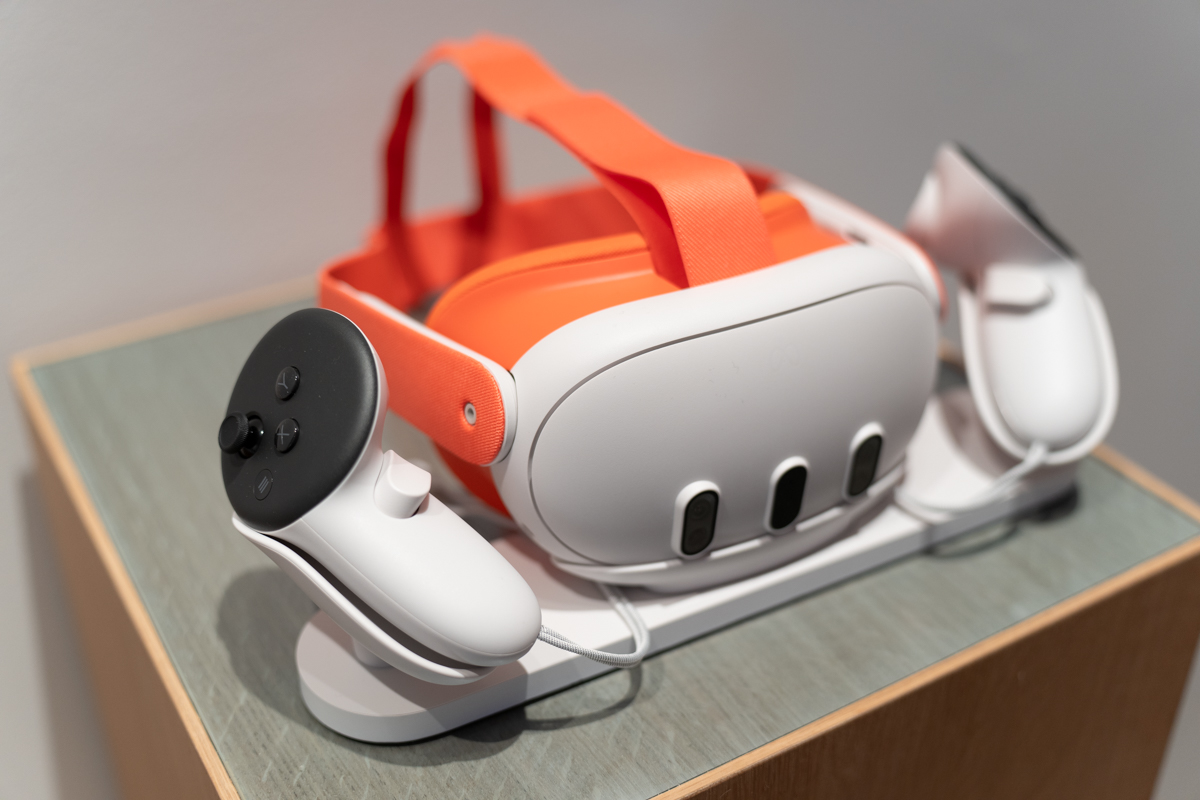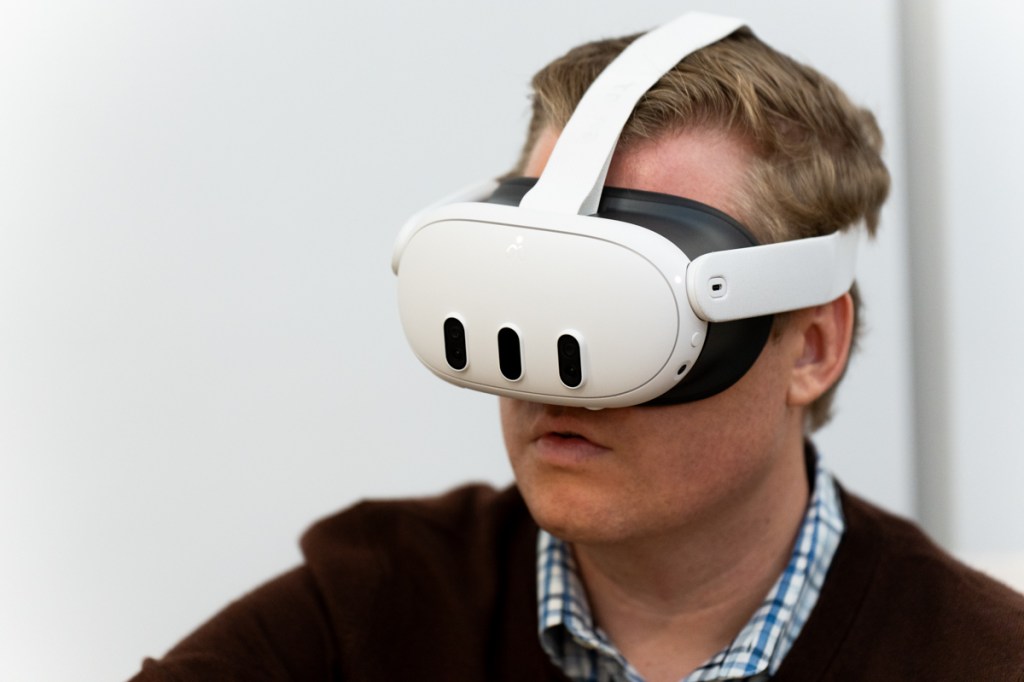Meta’s Quest Pro arrived to a mixed reaction when it launched late last year. The consensus — if one can be found — was that the headset presented some impressive technological leaps over its consumer predecessor (the Quest 2), but the $1,500 price tag was ultimately prohibitively expensive. If that sounds at all familiar, it’s because that’s more or less the same feedback we see every time an intriguing new headset hits the market.
I had the opportunity to try the headset back in January at CES, along with the latest from HTC, Magic Leap and Sony PlayStation. I probably shouldn’t have tried it on immediately after the Magic Leap 2 — which was the ultimate example of very good, but entirely too expensive XR technology.
The Quest Pro isn’t the Magic Leap, even though the two are effectively going after the same subset of users: enterprise clients. Meta and Magic Leap both — I think rightfully — determined that the real money is in selling headsets for training, prototyping and other business-minded functions. Many big corporations will spend $1,500 (or even $3,300) without batting an eye, if it means saving money in the long run.
But Meta is not quite ready to abandon the consumer market just yet — nor is it ready to put all its eggs in the AR basket. Sticking to mixed reality affords a fuller spectrum of applications, including more immersive VR experiences — including games. For the AR bit, opaque headsets like the Quest Pro rely on passthrough technology, using on-board cameras to effectively reconstruct an image of the world around you.
It’s no surprise, then that the new Quest 3 maintains that technology. The big question is why the Quest Pro is sticking around. The obvious answer is that the Pro is less than a year old. The Quest 2, on the other hand, is a week or two short of its third birthday — in fact, it was released so long ago that it still carried the Oculus name.

Ultimately, however, there is a lot on this new headset that makes the pro version seem almost redundant — or, at the very least, very overpriced. While it’s true that the new headset lacks some of that enterprise edition’s more premium features, the Pro’s starting price is around 3x that of the Quest 3. That’s not easy to justify. Of course, Meta’s not really thinking much about enterprise.
Last week, we attended a briefing in the Bay Area, featuring the new headset. The Meta Quest 3 inherits a lot of DNA from the Pro, including its mixed reality platform. Even if the company had already invested years and millions into the VR content side of things, maintaining both categories would be foundational, as full immersion lends itself better to the non-casual end of the gaming spectrum. With the exception of a relative handful of titles like Pokémon GO, the current generation of titles don’t require a player to be tied to a fixed real-world location.
According to Meta, the Quest 3’s full-color Passthrough tech has 10x as many pixels as its predecessor and 3x more than the significantly pricier Quest Pro. The visuals are powered by a pair of displays (one per eye) that measure in at 2064 x 2208 pixels (“4K+ Infinite Display”). It’s the highest res display on any Meta/Oculus device. The 110-degree field of view is roughly 15% wider than the 2.

The system is powered by the newly announced Qualcomm Snapdragon XR2 Gen 2 chip, which itself promises double the GPU processing power than the Gen 1. In keeping with that, 50 upcoming titles are actually graphicly improved versions of older games. Or you can just go ahead and play any of the 500 or so Quest 2-compatible games/apps. There are also 50 entirely new titles coming up on the platform.
Our hands-on experience with the handset involved some quick game demos, none of them nearly long enough to give you a full-on review. But that’s kind of the whole deal with these sorts of events. Among the titles were Ghostbusters: Rise of the Ghost Lord, Samba de Amiga and Stranger Things: Tender Claws. Of the three, Ghostbusters is the one that really stuck with me. I admit I’ve got a childhood soft spot for that one — but also, when I close my eyes and think about VR’s promise, it’s these sorts of immersive experiences.
The headset is fairly comfortable. Again, I admit that I didn’t have a ton of time with it — I’ll have to save the more comprehensive writeup for a review. But at 515 grams, it’s a good bit lighter than the notoriously heavy 722 gram Quest Pro. It’s also not a huge bump from the Quest 2’s 500 grams. It’s far easier to imagine working out in Quest 3, versus the professional model.
The visuals are a marked improvement over the last generation. They’re higher res and crisper, which goes a long way toward adding immersion to the whole experience. So, too, does the 40% louder speakers, paired with 3D spatial audio tech.

The headset looks a good bit like the Quest 2, though there are now three slits in the front of the visor, positioning the cameras directly in front of the eye. The system also uses SLAM (simultaneous localization and mapping) to map the environment and determine the position of walls and other landmarks. This is more or less the same technology found in autonomous cars and robotic systems. This can help you avoid getting too close when in VR and tie graphics to real-world objects in AR. They do, however, drop the Pro’s face and eye tracking — so that’s a point in the pricier model’s favor.
The system ships with a pair of refined Touch Plus controllers, which drop their predecessor’s rings, while getting improved haptic feedback. “Feel more connected to every experience with ergonomic, ring-free Touch Plus controllers that let you experience realistic sensations and fine-tuned precision – as if you’re actually holding a bow, scrambling up skyscrapers or blasting through space,” Meta writes. “You can even explore without controllers, thanks to Direct Touch that follows your gestures, letting you use just your hands to find your way.”

The controllers weigh in at 126 grams (including the AAA battery) — 38 grams lighter than the older Touch controllers. The headset should take around two hours to charge from 0-100%.
Meta is promising roughly the same battery life for the headset as the Quest 2, which was rated at two-three hours. Here’s a more complete breakdown directly from the company:
- Overall: Up to 2.2 hours of usage on average
- Media: 2.9 hours of usage on average
- Gaming: 2.4 hours of usage on average
- Social: 2.2 hours of usage on average
- Productivity: 1.5 hours of usage on average
































Comment